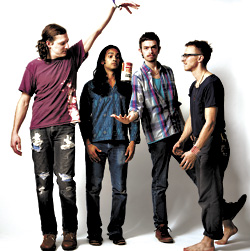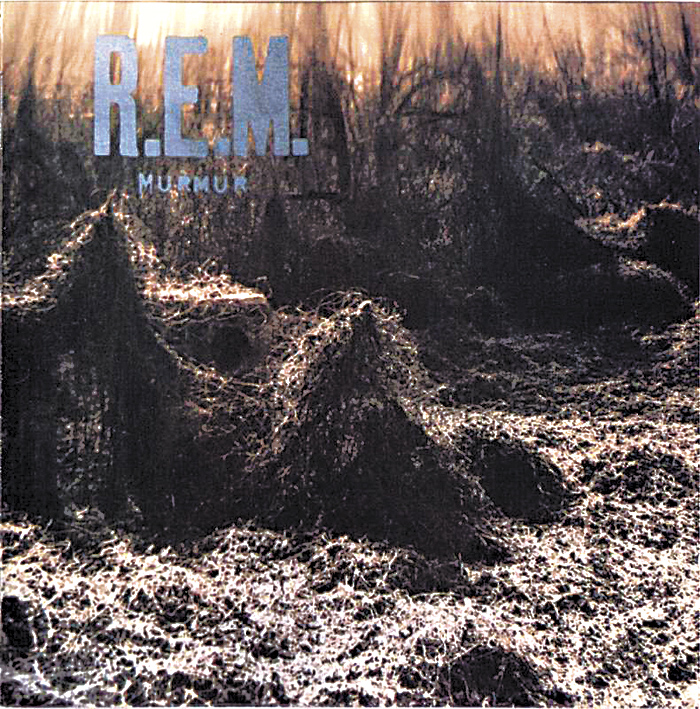After their respective graduations from exemplary institutions of higher learning, Yeasayer founders (and high-school friends at the Park School in Baltimore) Anand Wilder and Chris Keating reunited in New York. Brooklyn, to be exact: the same borough where previous musical Park School alums Josh Dibb (aka Deakin), David Portner (Avey Tare), and Brian Weitz (Geologist) of Animal Collective settled just a few years before.
That the five indie rockers attended the same high school is not yet common knowledge. “I’m actually really, really happy that no one has picked up on that,” Wilder says.
Oops.
“I was in a play with David Portner when I was in ninth grade,” he adds. “I always looked up to those guys. They were always seeking out new music. I was in a band in eighth grade when they were doing their stuff with Automine, and I called them for advice when we were signing onto Monitor Records. But…you know, we get enough Animal Collective comparisons as it is, just because we’re, you know, somewhat experimental or whatever.”
The musical connection to their former classmates is not an isolated incident. The abruptly acclaimed and suddenly sanctioned (in a virtual hailstorm of recent huzzahs and hosannas from the music press) Yeasayer have, in fact, garnered a grab bag of presumed influences from those same gushing critics. Enough, ironically, to render their sound unique.
There’s the assumed Animal Collective influence, of course. And Grizzly Bear, and TV on the Radio, and Akron/Family. One reviewer even remarked upon the similarity of Yeasayer’s 2007 debut, All Hour Cymbals, to the soundtrack of Disney’s The Lion King (and it’s there, dammit).
“I guess a lot of people compare us to the Arcade Fire sometimes,” Wilder says, “and I don’t really understand that one.”
Yeah, me neither. Unless the describer is taking the easy way out by referencing another popular band that happens to use a number of wide-ranging, nontraditional instruments (you think the Beatles are the only group to overdose on sitar?) to successfully communicate with an ever-expanding indie audience (for the record, I’ll shout out Lindsey Buckingham and Peter Gabriel, though the Cymbals track “No Need to Worry” is pure midcareer, Animals-era Pink Floyd).
“Obviously I can’t deny the Roxy Music or Talking Heads or Paul Simon or Brian Eno comparisons,” Wilder says, “because they’re all pretty appropriate, I think.”
Yes, world-music references (at least world music filtered through the fingers of thoughtful young men with advanced educations) understandably abound. Throughout Cymbals, layers of harmony swirl over a bedrock of polyrhythmic beats while any number of sampled stringed instruments so remote they would insult a xenophobe cut through the middle like a bullish Frank Gore. Cymbals‘ early-release single, “2080,” for example, proffers lyrics of particular premonition and portent (“In 2080/I’ll surely be dead/So don’t look ahead/Never look ahead”) above a series of sprightly strains. And that’s distinctive enough for now.
“I feel like our attempts at sounding different are paying off with some of the notoriety we’re getting,” Wilder says. “I mean, for me, the only goal we have is to make stuff sound different. I feel like the way to be innovative is to experiment and see how far you can stretch sounds and formats of songs and still remain within the pop kind of formula.”
So far, Mr. Wilder, so worldly good.





